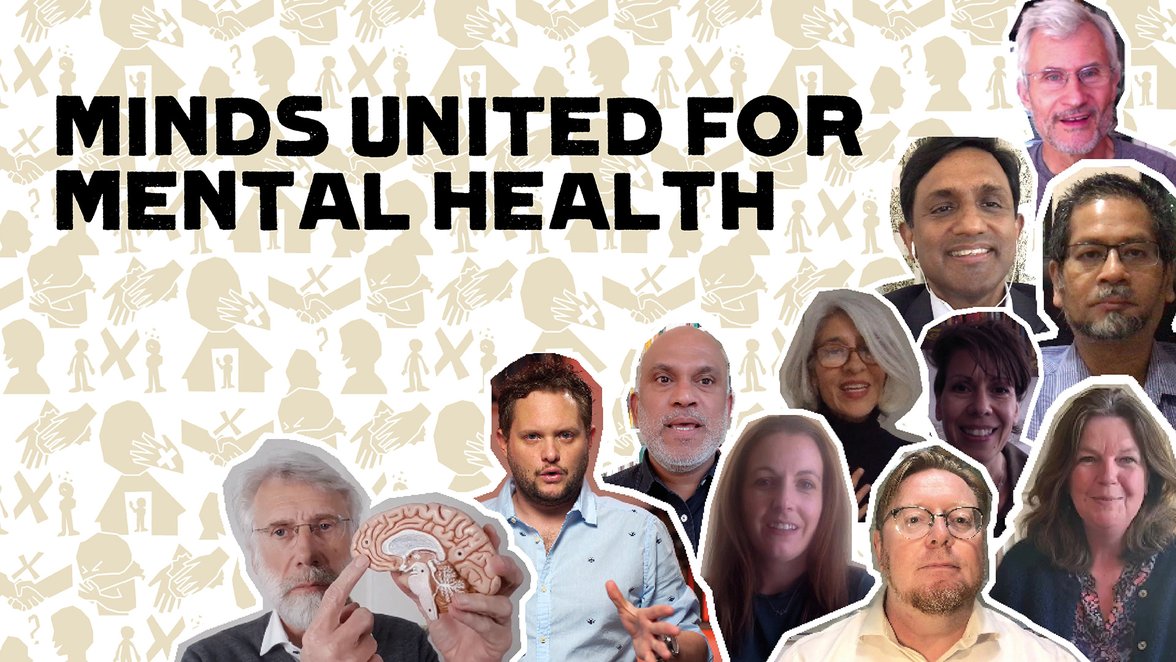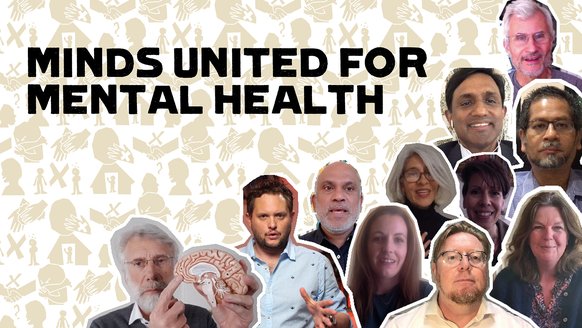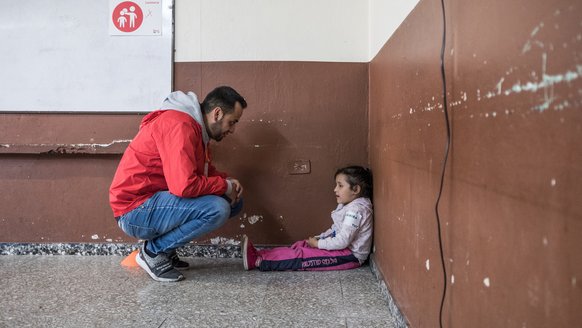Minds United for Mental Health: 10 Steps to Uphold Wellbeing Amid COVID-19
May 28, 2020

The devastating physical impact of the COVID-19 pandemic on millions of people has escaped no one. In the first months of the year - when the scale of the disaster became increasingly clear - governments around the world initiated a range of physical measures to slow down the spread of the disease.
Yet relatively little was said of the silent - and growing - mental health crisis following in the pandemic’s wake. The psychological and emotional devastation the disease wreaks on vulnerable children and their families worldwide has been largely overlooked. And the necessary measures we should take to support their social and emotional wellbeing have been little explored.
A review of the impact of previous disease outbreaks, such as the Spanish flu pandemic and Ebola, shows that it is the most vulnerable in society who are most affected. This group includes migrant populations; displaced people and refugees; families living in poverty; women, children, the elderly and people with special needs and disabilities; and people with pre-existing severe and chronic mental and neurological conditions.
Ten steps to protect vulnerable populations
War Child brought together several prominent thought leaders (listed at the foot of this article) on the subject to explore how best to address the issues posed by this mental health crisis. These are the ten things we learned:
- Ensure any COVID-19 mental health initiative is fully informed by the UN policy brief on mental health and psychosocial support (MHPSS). This will help ensure widespread availability of MHPSS care, a whole-society approach and improved recovery through building systems for the future. Obtain clear evidence before implementing any initiative - and adapt your COVID-19 MHPSS strategy accordingly.
- The current situation is unique - so adapt your intervention to current needs. But recognize that many of the principles and approaches are similar to those in other emergency settings - so learn from the past and use any relevant existing guidance.
- Try to safeguard the quality of your interventions when providing MHPSS support to vast numbers of vulnerable people - particularly if you’re offering them remotely.
- Collaborate across different sectors and socio-ecological levels - multidisciplinary integration is critical to success.
- Improve detection and access to MHPSS services, especially when contact is restricted. This is particularly relevant for the most vulnerable children, adolescents and families.
- Tell a story that goes beyond the need for services; develop a narrative that explains how to put lessons learned and existing principles into action in the current crisis.
- Engage parents and caregivers and involve children and young people in combatting the spread of the epidemic, thereby building their resilience and their recovery. Establish virtual networks and innovate methods that use remote delivery or self-help materials to increase access to certain kinds of support.
- Provide innovative psychosocial interventions for children - such as singing, music and safe remote access to games - as well as for their parents and caregivers.
- Track and monitor children born during the COVID-19 pandemic to identify nutrition-related stunted growth
- Improve access immediately to all vulnerable people - and protect them. Use different platforms (such as phones, virtual/digital therapy, locally relevant self-help activities to do at home), and provide access to in-person MHPSS activities where possible and prepare for the increased volume of need. Protect children who were sent away from homes, or who have lost access to basic life support, such as medication, shelter and food.
You can watch the conference in full online.
Panel participants - Dr. Ann Willhoite. Dr. Carmen Valle-Trabadelo. Diederik Jekel. Friederike Bubenzer. Prof. Joe Thomas. Dr. Koen Sevenants. Leslie Snider, M.D. Ambassador Paul Bekkers. Prof. Mark Jordans. Orso Muneghina. Endowed Prof. Trudy Mooren. Dr. Unni Krishnan.
Watch more videos from thought leaders taking part in Minds United for Mental Health.
Follow #MindsUnitedforMentalHealth for more updates and discussion.

